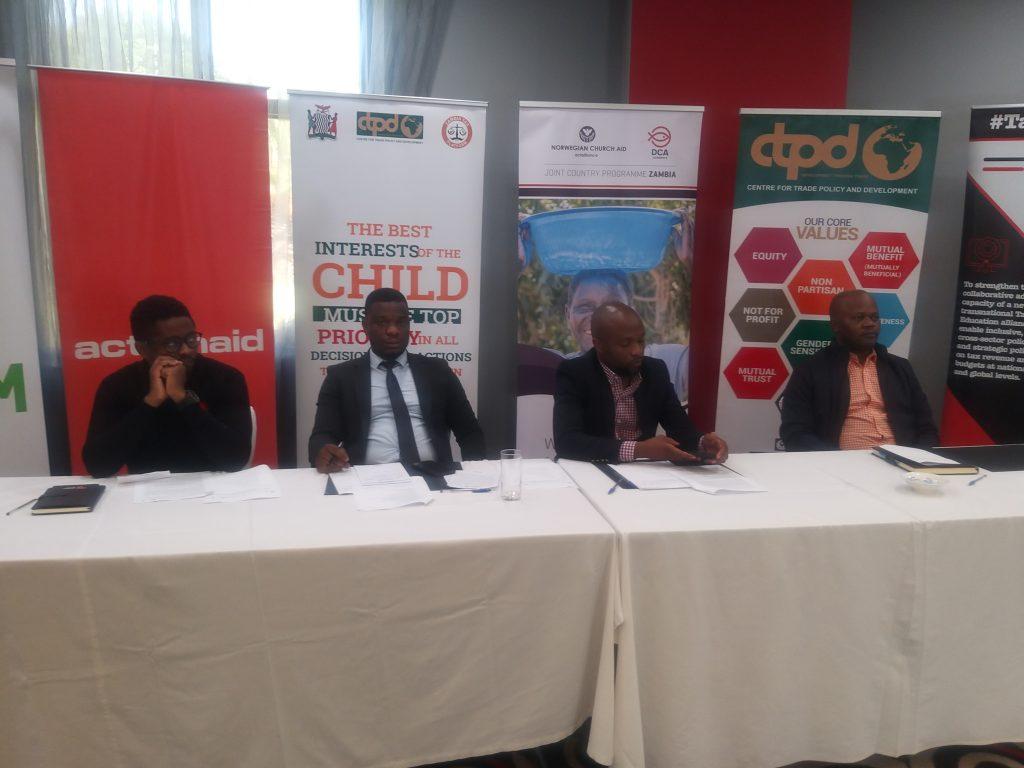CSO urges Zambia to adopt UN tax framework

…. Kabinga says the CSOs want inclusive tax platforms and working groups on tax matters.
By Francis Maingaila
Lusaka, Zambia24 (19-05-2024) – Civil Society Organizations (CSOs) in Zambia are calling on the Zambian government to collect taxes under the United Nations Framework rather than the Organization for Economic Cooperation and Development (OECD) interest.
The CSOs want taxes to be collected under the United Nations Framework instead of the OECD, which they claim prioritizes their countries of origin instead of the countries where resources are extracted.
The CSOs are also not urging for the establishment of more inclusive tax platforms and working groups on tax matters but also call comes as Zambia looks to address issues related to tax evasion, revenue collection, and increased transparency in tax-related matters.
The CSOs argue that the UN Framework would provide a fairer and more equitable approach to taxation, one that prioritizes the interests of developing countries.
Speaking on behalf of the CSOs, ActionAid country director Kabinga Musonda called for inclusive platforms to address global tax concerns at the UN, which require a UN tax convention and a UN Tax Board for equal participation.
Musonda said the CSOs support the United Nations General Assembly Resolution on promoting inclusive and effective tax cooperation, which Nigeria tabled and was adopted by consensus.
Musonda believes a UN tax convention and UN tax body provide better opportunities to address international tax challenges such as harmful tax practices propagated by multinational enterprises, profit shifting, and outdated tax treaties.
Musonda claims current taxation policies favor capital-exporting countries to the detriment of African countries and emphasize the need for a neutral body like the UN.
In addition, Musonda said the CSOs urge their government to make a formal country position on public international taxation while announcing the formation of a civil society Working Group on tax issues.
Musonda hopes the working group will support stronger engagement on international and domestic tax issues, leading to stronger tax governance accountability. The Zambia tax platform will host the working group to strengthen CSR coordination.
Musonda said CSOs organized a training session on international taxation and the proposed UN tax convention with the support of Norwegian church aid, Tax Justice Network Africa Action Aid, Oxfam in South Africa and Save the Children.
He hopes to build capacity on the topic to effectively advocate for Tax Justice at a national level and create a more equitable global tax system.
Local civil society organizations in Zambia have been concerned about the lack of transparency and meaningful participation of African countries in decision-making regarding international financing and taxation frameworks.
Musonda said the CSOs particularly criticize the Organisation for Economic Cooperation and Development (OECD), whose inclusive framework to shape global tax rule-making processes has limited developing countries’ equitable participation.
Zambia struggles to raise enough resources to finance its development and uses a significant portion of its revenue for debt repayments. Tax Justice Network research indicates that Zambia loses $635 million annually to tax abuse by multinational corporations.
The CSOs emphasize the need to close the loopholes that facilitate tax evasion and avoidance, which may generate adequate revenues and prevent Zambia from borrowing.
He said the closest platform for influencing tax policy so far is the OECD inclusive framework, which currently includes only 27 African countries and eight in the Sadek region.
Musonda express doubts about Zambia’s membership in the OECD inclusive framework and signing onto the two-pillar proposal. They argue that it lacks actual benefits to the Zambian economy and adequate justification to the public.
“The two-pillar proposal proposes a global minimum corporate income tax of 15%, which the CSOs believe is insufficient.”
He expressed concern that the decision has been taken without due consideration of its impact on national economies. Corporate income tax can be challenging to collect, based mostly on profits.
He feared that the proposed threshold is unlikely to generate adequate revenues, given the difficulty of determining the profits of multinational corporations.
Musonda firmly believes setting a higher global minimum corporate income tax threshold would reduce incentives to move profits to lower tax jurisdictions and tackle harmful tax competition.
